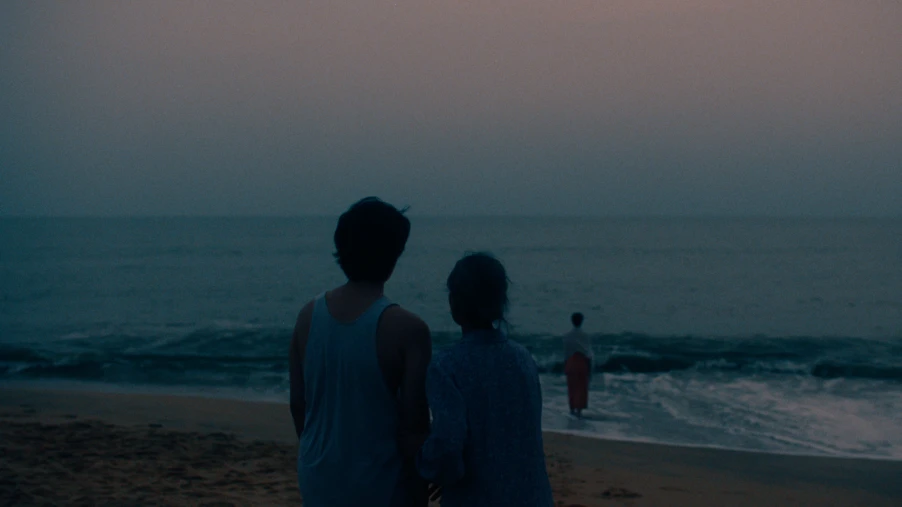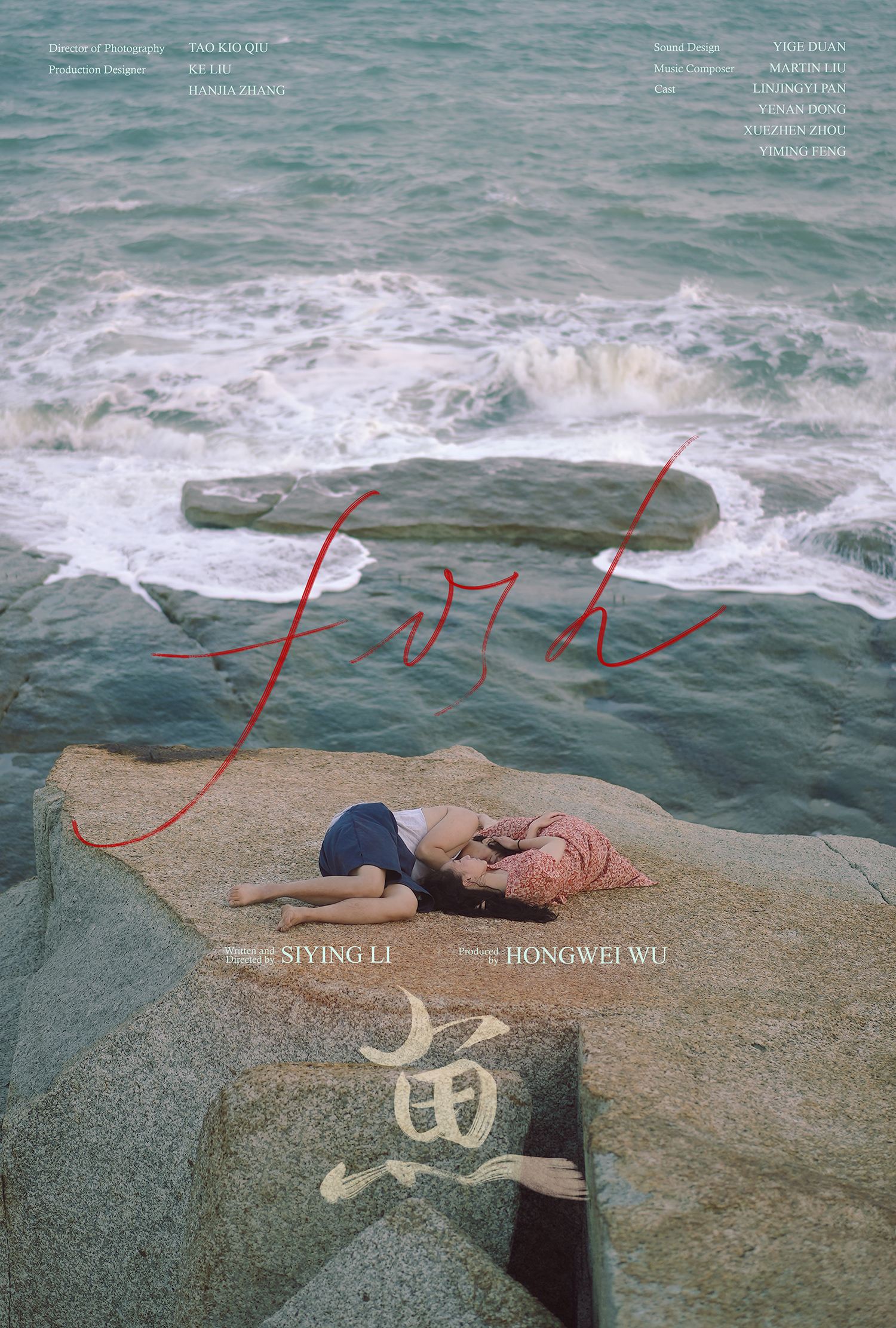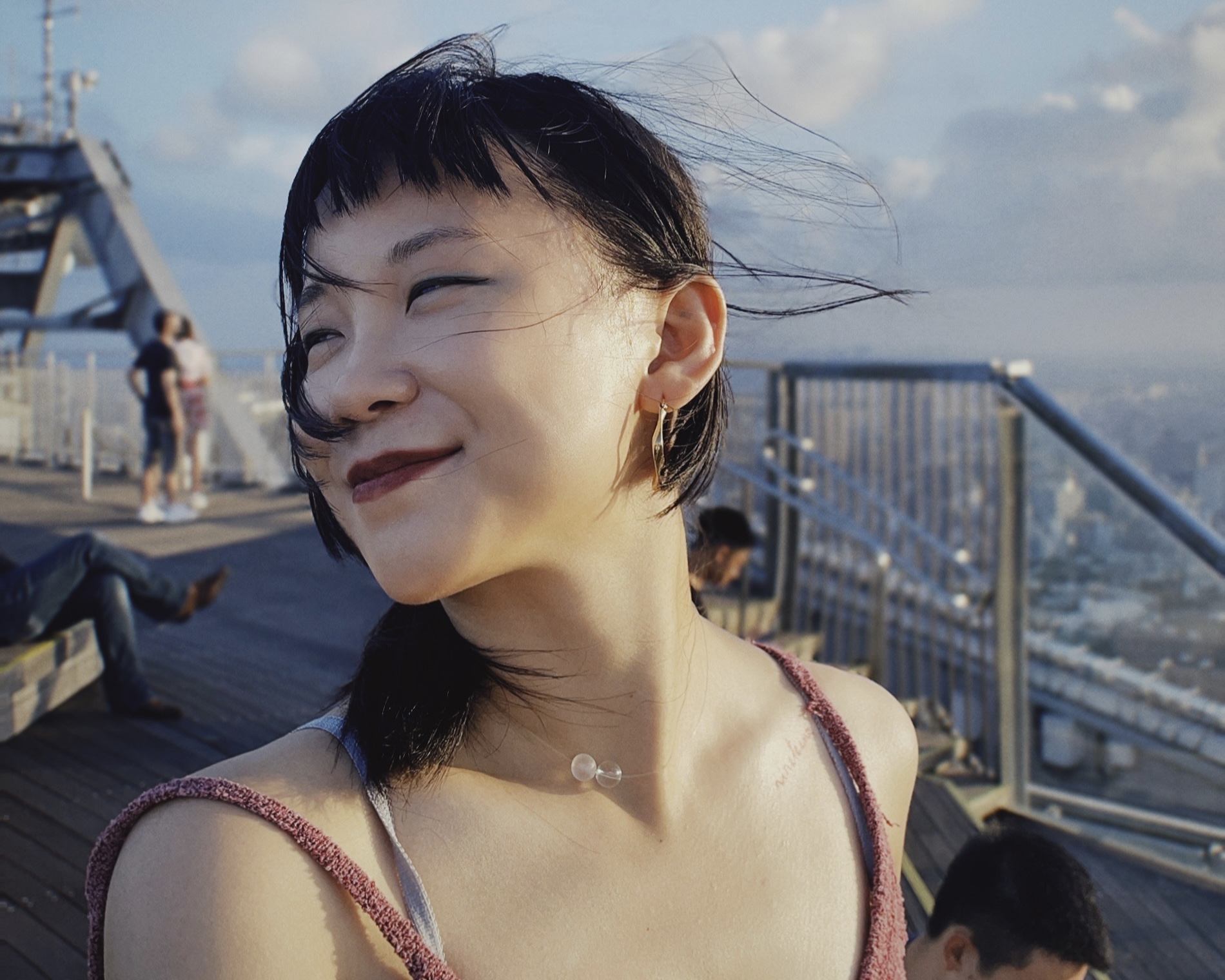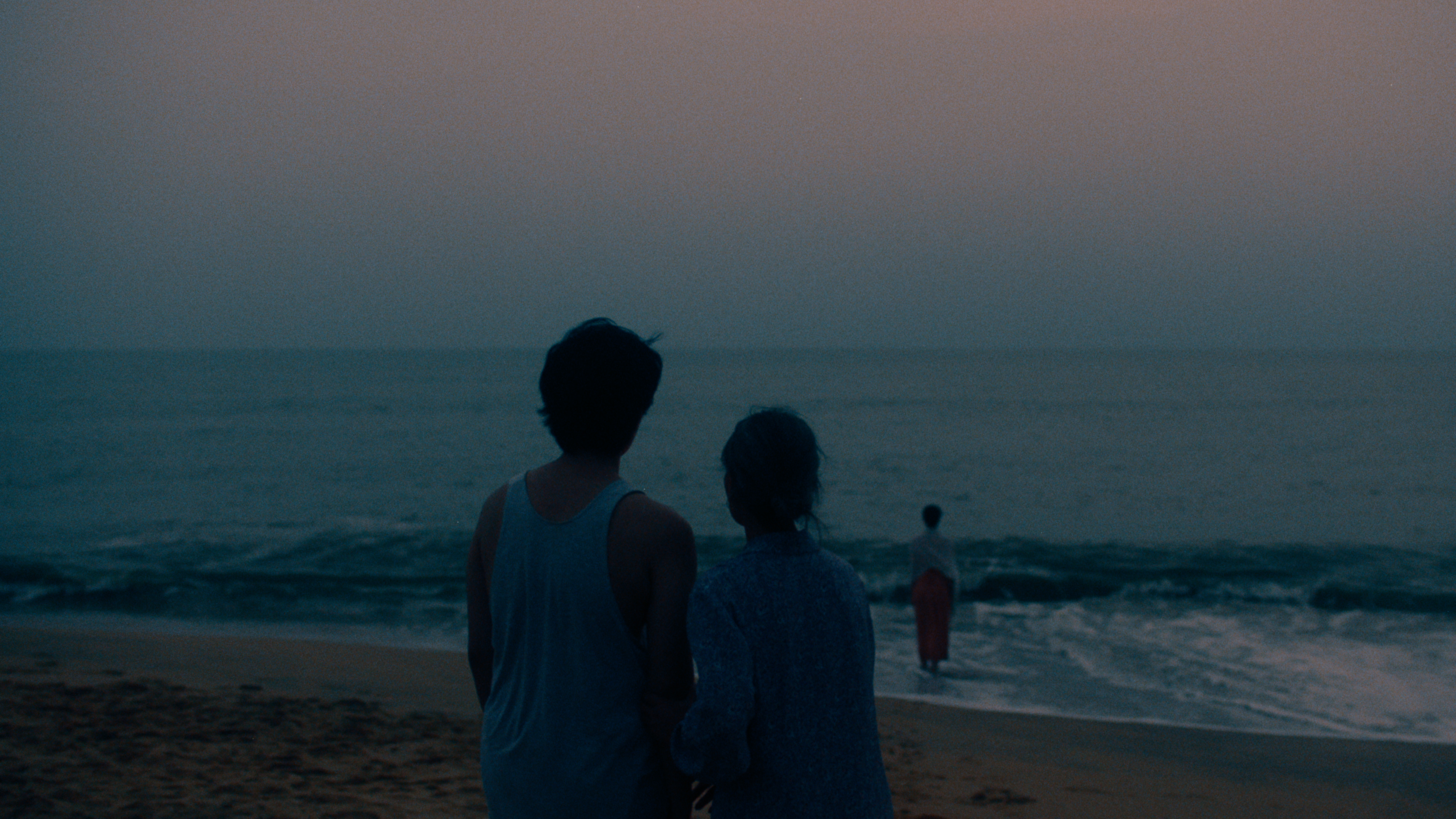COLLECTABLE STORIES: FISH

FISH
Short Talk with Siying Li (director) and Hongwei Wu (producer)

China / 2023 / 13'56''
BEST STUDENT FICTION FILM Category
21st IN THE PALACE International Short Film Festival 2024
Synopsis: On an isolated island, the boy Li Hong, haunted by the loss of his mother, is codependent with his motherly girlfriend, an unappreciated painter. Until one day, she decides to leave. Terrified of being abandoned again, Li threatens his life for her to stay and uncovers a mysterious fish painting his mum left behind.
Biography: Siying Li, a filmmaker and multimedia artist, holds a degree in Film and TV from New York University. Currently a graduate student at Tokyo University of Art, she is pursuing a degree in Global Art. Siying's creative pursuits are fueled by her belief in the healing power of storytelling, as she delves into personal narratives and addresses societal issues such as cultural identity and mental health within the context of capitalist development. Drawing from her background in dance, she explores the use of body interactions within visual frames to evoke emotions. Her debut film, 'Dr. Wang', explores the clash between western and herbal medicine, earning recognition at the Me&My City Festival in China and subsequent screenings in provincial libraries nationwide.

Siying Li, director
Neda Valcheva (author): Throughout the movie there was that feeling that a lot of things are left unsaid. What was the process of deciding what to show straightforward and what to leave hidden?
Siying Li (director): Basically the story is about a little boy who loses his mother while he is really young and he is projecting the young lady in the film to be his mom. It is not clearly shown in the storyline, but that’s how it is in my mind.
Neda Valcheva: What inspired you to create this film?
Siying Li: I was inspired by it during the Covid. Everyone was so isolated and I had this vision of a fish and how a boy interacts with a woman and about that motherhood feeling and certain body positions in my mind, as well as the symbol of the fish. So, we started to look for locations for shooting and Hongwei really helped me with that. The set that we picked was placed in a real abandoned town and we were told that going there is going to be really dangerous for us, as two girls, and we were not encouraged to go there by ourselves. However, we said “Let’s just go!” and we did it. On the way, we did not expect the factories that we found, as well as all the things that did not happen in my script, but we found a real place in that abandoned town.
Hongwei Wu (producer): We went to this town, without knowing anybody, but we found some photos online that showed this place as perfect for our story. To find the factory we just blindly walked around, then we saw it by the seaside, we walked in and we met the owner. While talking to each other we found out that his son went to the same school as me, he was very nice to us.
Siying: It was like destiny. There was something calling for us to go and it all matched ideally with the script. We also had a lot of interactions with the local workers, we even spoke the same dialog, some of them were from the same neighborhood as me. It all connected so well and the people were really supportive.
Neda Valcheva: Tell us more about the symbol of the fish, since it is so essential for the story and it even has its own voice in the film?
Siying Li: It is a fun fact, but I painted all the paintings in the film. I was imagining that based on this abandoned island everyone’s life is involved around the fish. They go fishing, they eat fish and they work in the fishing factories. That was all in my head, but when I actually visited the town I realized that different oceans give different vibes and energies and they are involved in people’s mindsets in different ways. I think the location, where the shooting took place, makes people scared and it gives them really depressing feeling and, since it is an abandoned town, the people are trying to leave and they do not think about other things. So, the symbol of the fish is limited in the film, because the people are limited by the fish, they are not expecting other things outside of this area. The main character wants to be a painter, which is absurd for having this dream in a fish town.
Neda Valcheva: Probably that’s why she wants to get out?
Siying Li: Yes, and is kind of ironic, because all of her paintings are about fish.

Author's view (Petar Penev):
Fish, a film by young Chinese filmmaker Siying Li, argues that trauma alone does not break us: it is how we react to and treat the situation that defines what happens next.
Throughout the film, we follow a man unable to control his ego, wasting his life clinging to distractions and pleasures, instead of confronting his problems from within. This pattern eventually proves to be his downfall. We cannot blame him. The director effectively shows that toxic behaviour is all he knows. Secretly we sympathise with him and support his cathartic escape from the chains tying him to his comfort zone.
As many viewers of this work will recognise, people like our protagonist exist in reality. This story about the self-destructive nature of not accepting reality is sure to hit close to home. We can but hope that it serves as a warning, but maybe we have to hit rock bottom before we can begin afresh.






